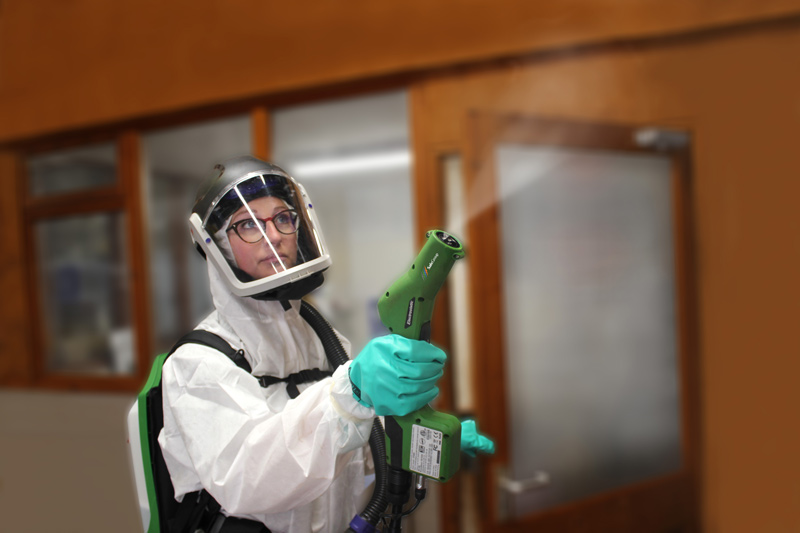Cleaning A Path To Covid‑19 Recovery And Future Health
 The CEO of one of the UK’s leading emergency soft FM specialists predicts a transformed cleaning industry can play a key role in Health Secretary Matt Hancock’s vision of COVID‑19 testing technologies transforming health.
The CEO of one of the UK’s leading emergency soft FM specialists predicts a transformed cleaning industry can play a key role in Health Secretary Matt Hancock’s vision of COVID‑19 testing technologies transforming health.
Steve Broughton, founder of SafeGroup Services, says it is an example of how COVID-19 will fundamentally change the lives of many millions of people in the UK, but not necessarily negatively.
He was commenting after Matt Hancock told a parliamentary committee of MPs the mass testing system set up to tackle COVID‑19 could continue to be used to tackle other deadly diseases.
The health secretary wants to fundamentally change the way we identify illness and intervene to treat it early and prevent the suffering and cost associated with serious disease.
Steve Broughton said: “I could immediately see how the cleaning industry can support his vision. We can help organisations across the UK create healthier and happier environments for staff, customers and the wider public.
“Mr Hancock’s vision acknowledges COVID‑19 is likely to have changed our attitude to infection for good. Early intervention to prevent serious illness will have to go hand-in-hand with more intensive disinfection in workplaces and public spaces. This will be a job for a transformed cleaning industry.”
The health secretary sees the opportunity to use the UK’s new mass testing capability developed to fight COVID‑19 to support a radical shift towards preventing illness rather than curing it.
He also wants to challenge the British culture of “soldiering on” when illness strikes, which spreads infections to even more people, at work and through extended networks of families and friends.
In his sights are the 10,000 flu deaths recorded every year in the UK, alongside the 30,000 pneumonia deaths, many of them related to flu. Other illnesses may be suitable for the same treatment.
Matt Hancock says he wants this new “massive diagnostic capacity” to be at the centre of how the NHS treats people before they become seriously ill. Preventing serious illness would save money, not cost more.
Steve Broughton said: “This makes perfect sense. The system will be needed again for the next pandemic. And the best way to maintain such capability is to use it, develop it, and perfect it.
“This new approach will have to operate in tandem with other changes to everyday practice, also triggered by COVID‑19. One of them our approach to hygiene and cleaning. New standards of disinfection are very likely to be maintained.”
He added: “I believe, the pandemic has also changed our attitudes to hygiene, probably for good. Which is why more intensive cleaning is here to stay. Matt Hancock’s vision for preventing illness adds weight to my conviction.
“Employees, customers and the public in general will demand cleaner, more hygienic spaces. A pivot towards mass testing for illness, for example for flu, using the NHS’s new capabilities will only embed that trend more deeply.”
The testing system could identify individuals at risk and hotspots of infection, for example offices or a railway station. Then action will need to be taken. A key response is very likely to be specialist disinfection, a process that reassures staff, customers and wider stakeholders, including the media.
The current test and trace system is already driving this process. Before COVID‑19, people struggled on at work or recovered in secret at home. Test and trace has changed that dynamic, probably for good.
Steve Broughton explained: “There will no doubt be pushback against the health secretary’s vision. Personal freedoms and best use of resources will come into play.
“But we, as a business, are ready to talk to anyone about how our expertise can help develop new ideas in infection control, for the good of us all. More effective, smarter and better targeted disinfection cleaning is here to stay.”

























































